In 2016, we published the first part of a rare Linda Ronstadt interview conducted by Best Classic Bands’ editor in 2013—the same year that the singer made public her Parkinson’s Disease. Prior to our publication, only a small portion of the interview had been published.
Here is the second half of the complete interview with the singer, born July 15, 1946.
You always made a point of trying new things. Where did that drive come from?
There’s nothing wrong with it. If I go to see Aaron Neville and he doesn’t sing “Tell It Like It Is,” I’m gonna cry. I’ll feel so bad. But I was just a restless person and I had all of this stuff in my background that I had heard. The Mexican music—talk about beautifully crafted melodies and poetry; you can’t beat that stuff. I’d hear some new song and I’d think, I heard better songs than that when I was 7 years old in my living room.
How did your record labels feel about you changing styles so frequently?
They didn’t want me to do it. They were horrified! But I got away with it and I was lucky. To their credit, once they saw that I was determined to do it and they weren’t going to turn me away from it, they helped the best they could. But they didn’t know how to sell Mexican stuff. We probably could have sold 300 times more records if they’d known how to sell records in Latin America. And I didn’t want to have to go down there to play because some of those venues are dodgy. You have to show up with a gun to collect your money.
Engineer George Massenburg was also a vital component to your sound. How did you and he work together?
George taught me how to overdub. He had a very methodical way of doing vocal overdubs. That liberated me in the studio because I knew that I could just sing anything I wanted. I could throw down any vocal I wanted with the most reckless abandon because if we didn’t like it, we could edit it out with his surgical precision. He was the guy that really pioneered that way of cutting something in mid-molecule and splicing it onto something else, and making it sound absolutely natural. After digital recording came into use, we really could fly with those.
Which of your recordings is your personal favorite?
I did my best singing on [1993’s] Winter Light—my voice was the best it was ever going to be during those years and my musicianship was as secure as it was ever going to be. I could sing pretty much whatever I set out to do. But I never listen to my records, especially the early ones. I’m sure those would make me absolutely cringe and ruin my week. Sometimes I go back to them for reference. When I was writing the book I went on YouTube and looked at them so I could see what I was wearing and who was standing with me onstage. I was astonished at what was on YouTube because I had never looked at any of that. It seemed like a dangerous thing to do emotionally.
Watch Linda Ronstadt and Johnny Cash duet on the latter’s TV program in 1969
During the ’70s Southern California singer-songwriter boom, did you realize you were part of such an exceptional music moment?
We didn’t think of it like that. We were just thinking about “I’ve got to get that song.” J.D. [Souther] would write a good song and I’d go, “Wow, that’s a good song, write another one.” We were living together and I’d watch him write and I’d go, “He’s a good songwriter.” The very first time I met Jackson [Browne], I was 18 and he was 17 and I couldn’t believe what a good songwriter he was. There were some pretty good songwriters in California but I just figured that was California. We really weren’t thinking about that. We were thinking about the emotion and how someone describes it. It was, “That guy finishes my sentences. That guy’s got my life in his little page right there.”
Related: Photographer Henry Diltz on the early ’70s Los Angeles music scene
What was your first impression of your backing band that would later become the Eagles?
I was putting them together. I’d say, “Hey, Glenn [Frey], you’ve got to meet my friend Bernie Leadon. You guys would probably like to play with each other.” [Producer] John Boylan was saying, “Hey, you’ve got to meet Randy Meisner. He’d be good to play in the band on bass.” Then the minute that Glenn Frey and Don Henley were rooming together they started playing songs. I said, “Hey, those are good songs. Keep writing!” We didn’t think these guys were going to be stars but I knew they were going to have a hit when I heard “Witchy Woman.” I was living with J.D. Souther and they came over to our house to rehearse. We went out just to give them some space and went to the movies for a couple of hours and when we came back, they had worked out “Witchy Woman.” It was a small room and they had been singing for hours in that room and tuning their voices into it and tuning their voices into each other. It was a four-part harmony song and it just exploded out of that room. I went, “Oh, my God, that’s a hit for sure.”
Watch Eagles perform with “our favorite girl singer”
Listen to Ronstadt’s cover of another Henley-Frey song
Who is your favorite collaborator?
Emmylou Harris was the longest running but I couldn’t narrow it down to one song because we just fell into each other’s vocal groove so beautifully. We sang well together and we made a different sound that neither one of us made as an individual. I loved singing with Aaron Neville too. It was like heaven because I can’t do the things that Aaron can do. But when I sang with Aaron I found something I could do and I made up a whole new thing that I was never able to do before. I did a lot of dueting on the Mexican records and that was fun. That music has such beautiful harmonies. I was also very happy with the record I made with Ann Savoy, Adieu False Heart (2006), even though I could barely sing. I had just a tiny little piece of my voice left and I could barely sing so we made a very quiet record.
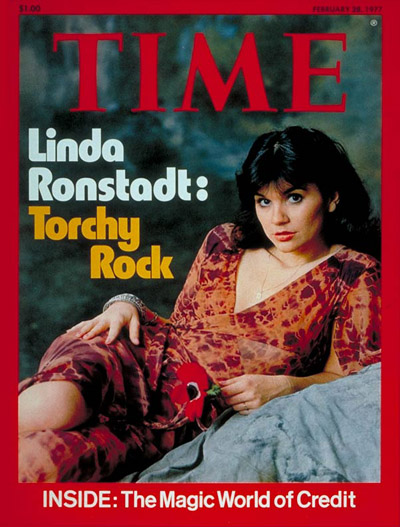
Ronstadt on the cover of Time magazine
Do you pay attention to the current music scene?
There’s always talent. Talent doesn’t leave the gene pool. My daughter plays stuff in the car. I like Adele—she’s an amazing singer. Amy Winehouse was that way—she had a very urgent story to tell and great musicianship. She had an incredible sounding voice. I think Pink is really good. She’s a good writer and she’s really footed in the blues. I like Alicia Keys. But I don’t buy their records. I hear it on the radio when my daughter plays it. She buys those records and plays them in the car.
You’ve said that there is actually too much music around now. What did you mean by that?
Music should be an elective experience. You have a mood and you want to work on that mood, you get out the right music to play. You sit down and you go, “How am I feeling about this?” Then you hear a record, like Frank Sinatra, and you’re in tears and you go, “I didn’t realize that I felt that way about this thing.” I need to learn from music, not be brutalized by it.
How do you feel about being nominated for the Rock and Roll Hall of Fame? [Note: Ronstadt was inducted the year after this interview was conducted.]
It was never an issue for me. I went through my whole life with no television. I never got a television until Barack Obama was elected president. Then I said, “I’ve got to see this.” But I was so horrified at television that I hardly ever turned it on. It [being snubbed by the Hall of Fame for many years] was something that other people made into an issue but it doesn’t matter to me.
Would you still be singing if you hadn’t gotten Parkinson’s?
You can’t tell what would have happened if you’d gone on a different path. I know I’d be singing because I sang my whole life since I was born. I’d at least be singing in the shower or driving my car or harmonizing with somebody. But I can’t do any of that now. I’m grateful for the fact that I can talk. I don’t know how much longer that’s going to last.
What will you do now that singing is no longer part of your life?
I’m going to be going to the doctor a lot, I suppose. [laughs] There’s a lot of physical therapy in my future. I don’t really know. In terms of music I’m really involved with this little group called Los Cenzontles that has a cultural center in Richmond, California. I’ve turned a lot of people on to them. I introduced them to the Chieftains and Ry Cooder and they’ve worked with them. Dave Hidalgo from Los Lobos already knew them. Dave introduced them to Taj Mahal. Jackson Browne has been involved with them. That’s where my musical family is in this part of the world. I have my musical family in Tucson and then I have my musical family here [in the Bay Area, where she now lives]. They do a better job of teaching kids how to sing, dance and play than any place I’ve ever seen.
Have you ever thought about producing other artists?
I don’t know the market at all. I don’t know how to make records that the kids do and it’s pretty discouraging when they get turned into MP3. We made high-fidelity records for better and for worse and it’s sad that for the first time in history we have less quality of sound than we ever have.
Watch Linda Ronstadt and Aaron Neville duet on “Don’t Know Much”
Related: The first half of our interview

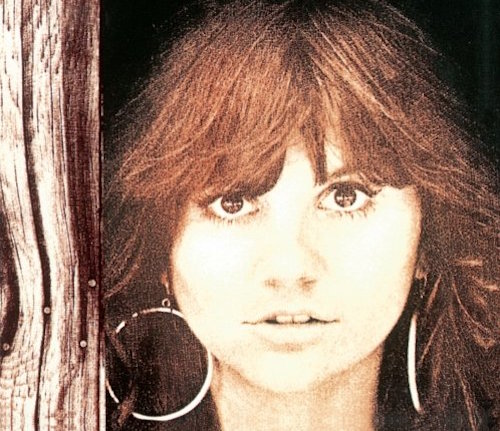

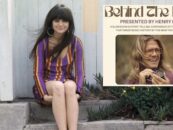
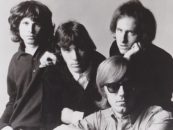
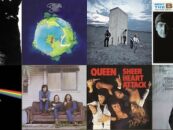
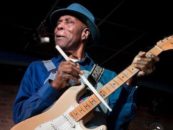

10 Comments so far
Jump into a conversationIn a vocal league of her own.
You’re very correct!
Linda is such a class act. I grew up with her voice and it is comforting to me and I am sad for her …. time marches on but I am glad that she is still involved in whatever capacity she can be in with music. God bless her !
I have to admit it , from the days of Different Drum and to now , I have always had a crush on Linda
The greatest singer of her generation, and it’s not even a close call. Saw her live in 77,78 and 99, thank god. She killed it live, and her bands were made up of legends.
Love Linda always. I remember hearing “Different Drum” in spring of’66 and thinking “Who is that? I want to hear more of her.” I certainly got my wish.
My fiancee at the time used the song “Different Drum” to break up with me. I guess the words said it all!
Linda Ronstadt is my favorite female Rock vocalist. In the mid to late 70s she was Queen of Rock and one sexy babe.
Since interview was published & reposted: Linda Ronstadt’s neurological diagnosis was corrected to Progressive Supranuclear Palsy. Happy Birthday to one of America’s greatest vocalists ever.
Do not underestimate her musical adventurousness. She was part of one of the major avant-garde works of the 1960s, Carla Bley’s Escalator over the Hill. Always respected her for that alone.